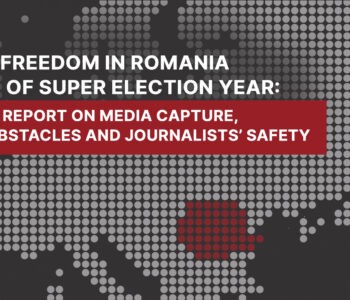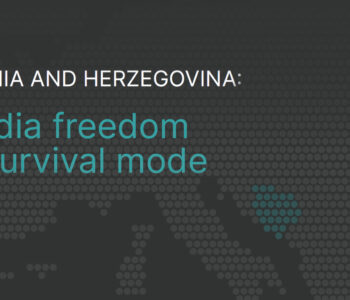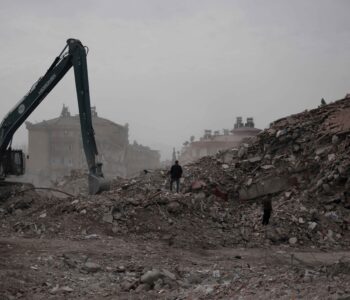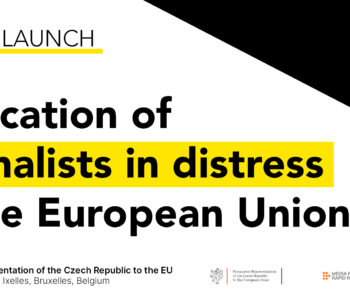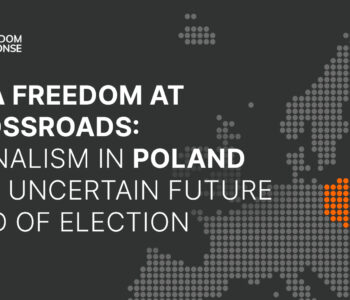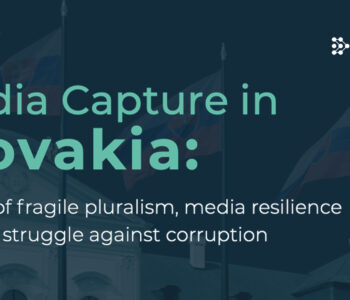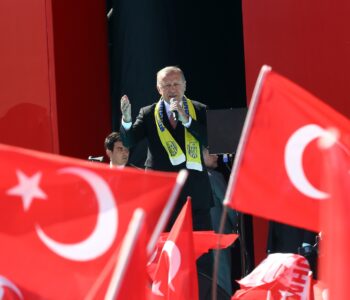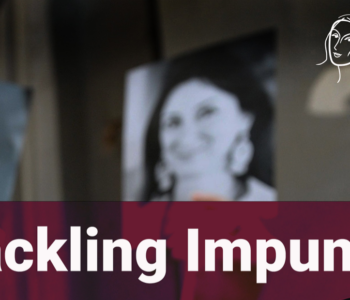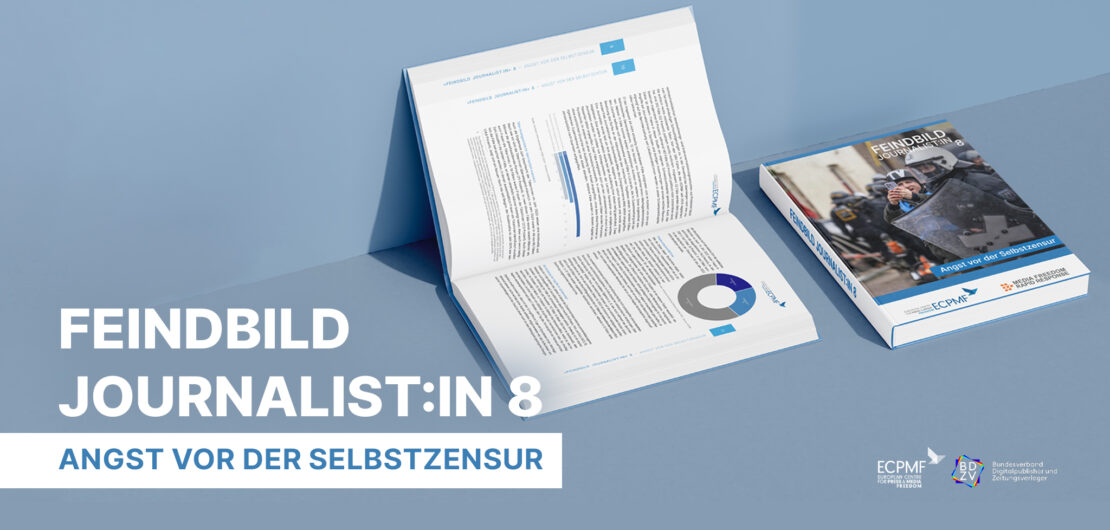 Library
Library
Feindbild Journalist 8: Fear of self-censorship
Feindbild Journalist 8: Fear of self-censorship
In 2023, the number of physical attacks on journalists in Germany increased compared to 2022. Rising from 56 cases in 2022, 69 cases of physical attacks on journalists were verified by the European Centre for Press and Media Freedom (ECPMF) as part of the MFRR in 2023.
For more than four years, the annual number of attacks on journalists has been at a high level compared to before the coronavirus pandemic, when an average of about 23 cases per year were registered between 2015 and 2019. The assumption that the number of attacks on journalists in Germany would decrease with the marginalisation of the “Querdenker” movement and the associated decline in the number of rallies has not materialised. Patrick Peltz, co-author of the study, said:
Indeed, the number of attacks in this context is declining. However, the figures from the Feindbild studies suggest that in certain, partially overlapping milieus and the resulting common protest structures, mistrust of the media has increasingly developed into hostility towards the media, which also has an increasingly pronounced behavioural side. Hostility towards the media no longer ‘only’ manifests itself in the ‘Lügenpresse’ cries, insults and threats that have become part of journalists’ everyday lives, but also in an increased number of violent attacks on journalists over the past four years.
Berlin replaces Saxony as the frontrunner for 2023 in terms of physical attacks on journalists compared to the previous year. Although Saxony recorded 13 cases, more than in the previous year (11 cases), Berlin recorded a significantly higher figure with 25 assaults. Of the 25 cases, 21 occurred in the context of pro-Palestinian demonstrations. Bavaria follows with six cases.
Focus on local journalism: security concerns have an impact on critical reporting
In cooperation with the Federal Association of German Newspaper Publishers (BDZV), ECPMF continued to monitor threats to local journalism in 2023. Compared to the previous year, the number of physical attacks on local journalists has declined. A total of seven physical and eight non-physical attacks were registered. In 2022, the number of physical attacks was 12. Some of the local journalists who were the target of physical and non-physical attacks in 2023 were also affected in the past. It was already pointed out in the previous study that a lack of anonymity in the local area can pose a security problem for local journalists.
A closer analysis of the state of Saxony, which accounts for a third of all registered cases since 2015 (117 out of 390), also reveals a previously underexposed phenomenon: self-censorship. Local journalists who work in areas where the far-right’s territorial capture is highly pronounced and reaches into the so-called centrist part of society report that certain topics are omitted locally due to a perceived permanent threat situation. Patrick Peltz said:
Reports from local journalists that they themselves or colleagues refrain from reporting on certain actors and movements out of concern for their safety is a very worrying development for press freedom in Germany. Critical reporting is particularly important ahead of the many upcoming local, state and European elections in Saxony this year, in which numerous right-wing extremists are running. ‘Blind spots’ in reporting make it easier for these actors to present themselves as harmless and benevolent candidates and thus attract the attention of people who feel neglected by the established parties.
It is important to further examine how pronounced the phenomenon of self-censorship already is and to what extent these reports can be generalized to other regions in Saxony and other federal states where the far-right capture of territory is also pronounced and a corresponding electoral milieu is very dominant.
Focus on countermeasures
Journalists, associations, media companies and many state institutions have developed countermeasures in response to the increased threats of recent years. In some cases, learning effects can be observed. While an increasing number of media houses offer their employees psychological counselling services, associations and organisations continuously initiate new support offerings, such as last year’s Helpline project. Police media protection has also tended to improve overall, although its quality can vary greatly. The committees of the Conference of Interior Ministers continue to advocate a new version of the Code of Conduct for Police and Media. Time and again, journalists report cases in which they were not adequately protected or were themselves the target of police measures. Overall, there is still a considerable need to improve existing services and create further ones. Alina Haynert, co-author of the study, said:
Even though we are seeing improvements in many areas – both from the state and non-state side – there are still significant gaps in protection and support. These affect freelance journalists in particular, who often do not seem to benefit from the protection structures of media houses. At the same time, they are disproportionately affected by physical attacks.

